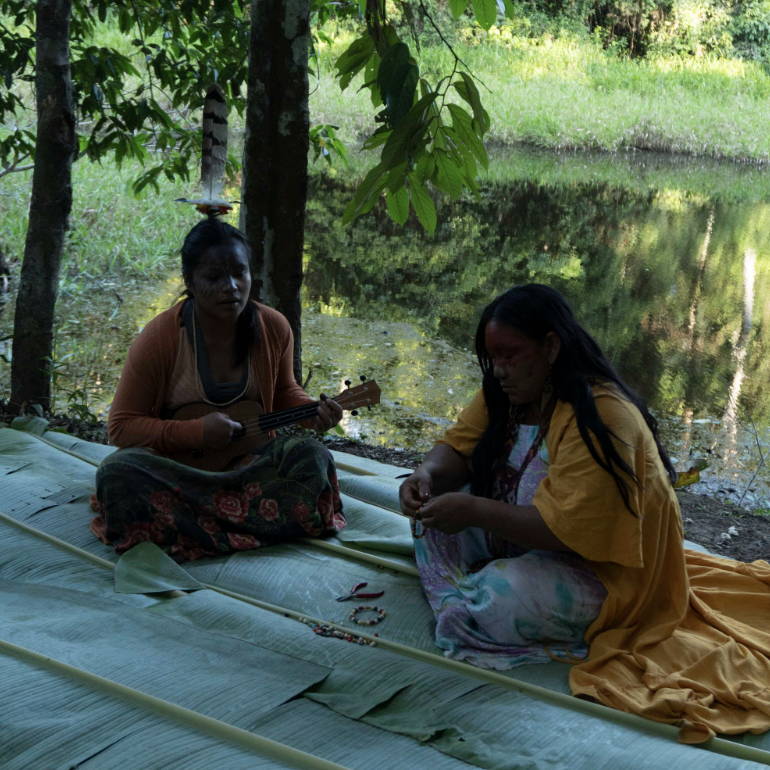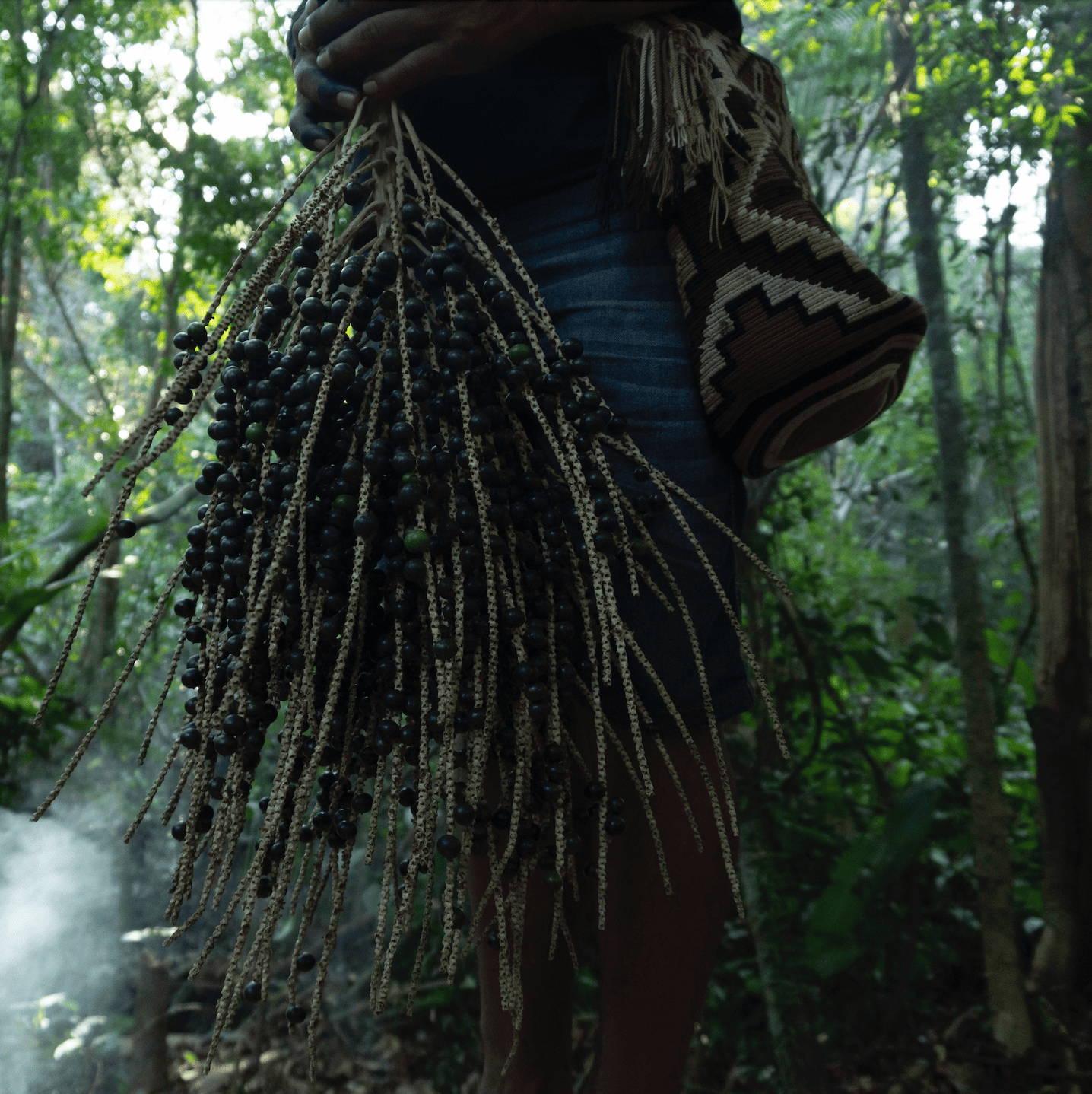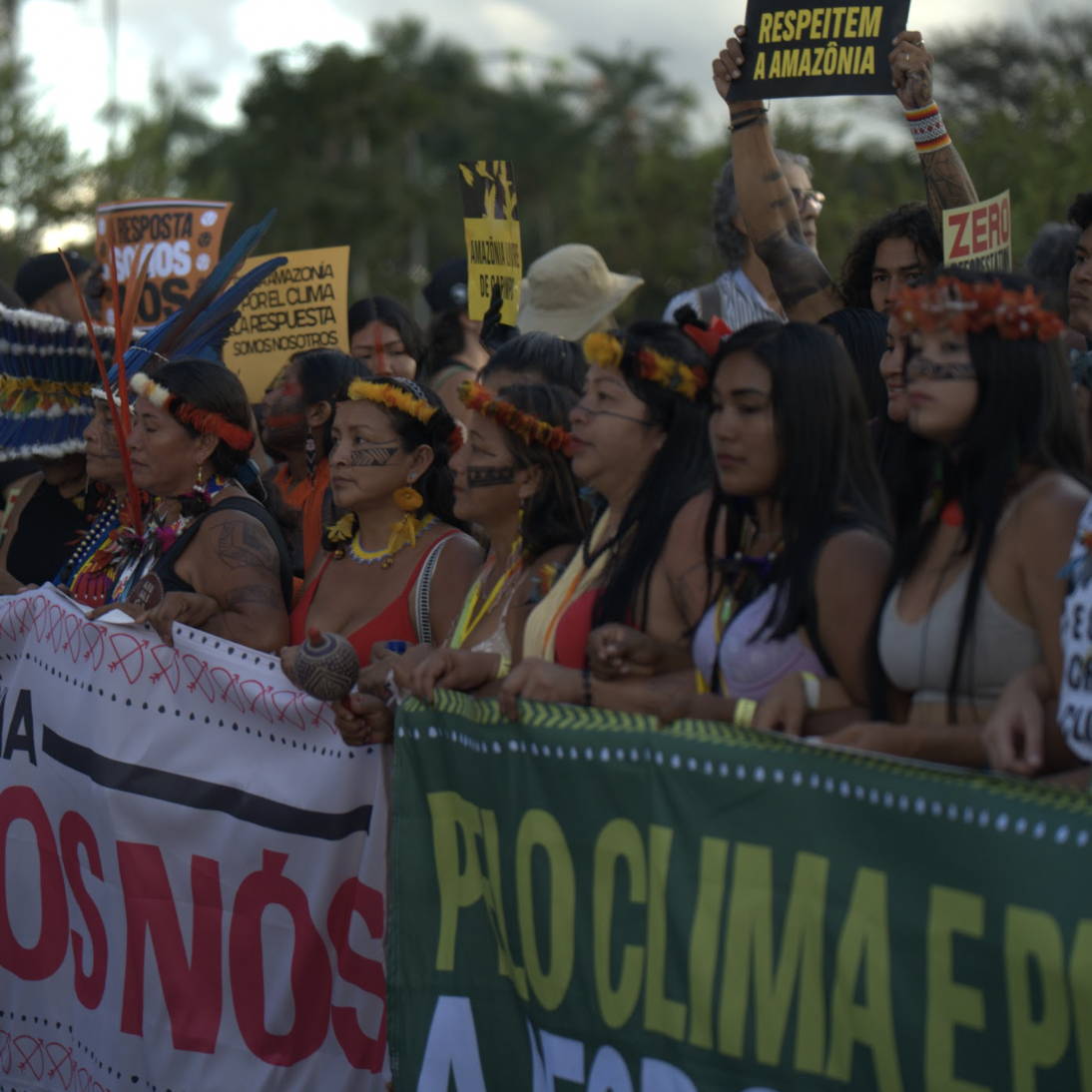
Goal 13: Climate Action
Indigenous Traditions and the Tropical Forest
For Indigenous peoples, the tropical rainforest is a living being, a sacred space where everything is connected.
By Kelly Bone Guajajara
28 September 2025
The tropical forest is not just a collection of trees, rivers, and animals. For Indigenous peoples, it is a living being, a sacred space where everything is connected. Every leaf, every stone, every sound of the wind carries a teaching. It is through this silent dialogue with nature that traditions, myths, and knowledge have been born—enduring for centuries despite the threats of the modern world.
The Forest as Mother and Home of Spirits
In many Indigenous cultures, the forest is seen as the “Great Mother,” a protective entity that nurtures and guides. The rivers are veins that carry life; the trees are elder sisters that hold memories; the animals are messengers that teach. This worldview goes beyond survival—it is a philosophy of life, where respecting nature means respecting oneself.
For example, many ethnic groups tell the legend of the jaguar, guardian of the night. It is believed that when hunting becomes excessive, the jaguar appears in dreams or on forest paths to warn the hunter. The message is clear: hunting must be balanced, done only to feed the family, never to accumulate. This myth, passed down through generations, serves as an “ecological code,” ensuring resources are not depleted.
Animal Wisdom: Lessons for Life
Forest animals are not seen merely as prey or predators—they are teachers. The monkey teaches the importance of community and playfulness; the ant shows the value of teamwork; the sloth brings lessons of patience and respect for time.
This learning goes far beyond childhood stories—it is a way to educate younger generations within the logic of the forest. While the modern world speaks of sustainability and ecological balance, Indigenous peoples have practiced these principles for millennia through narratives that blend ethics, spirituality, and everyday life.
Traditional Ecological Knowledge
Modern science increasingly recognises the richness of Indigenous knowledge. Many medicinal plants used in pharmacology today were discovered through Indigenous wisdom, which not only understands their effects but also the right time to harvest them, respecting the cycles of the moon, the rain, and the rest of the land.
The “coivara” farming system, often misunderstood, is a sustainable agricultural method in which small forest areas are cleared for planting and later left to rest and regenerate. This model, transmitted orally for centuries, maintains soil fertility and preserves biodiversity.
Storytelling as Environmental Ethics
Stories told around the fire or during forest walks are not just entertainment—they are survival manuals and moral codes. When it is said that “the tree cries when cut without need,” it is not just poetry; it is a symbolic way of teaching that natural resources must be used consciously.
This storytelling form transmits values of respect, reciprocity, and collective responsibility. Unlike the technical language of science, Indigenous traditions use metaphors, spirits, and animals to nurture ecological awareness from an early age.
Threats to Traditions and the Forest
Unfortunately, these traditions are under threat. Deforestation, agricultural expansion, mining, and pollution destroy not only trees and rivers but also stories, songs, prayers, and ways of life. Every hectare of forest lost takes with it a living library of knowledge, myths, and practices of care.
Additionally, cultural pressure and marginalisation make it difficult to pass on oral traditions to younger generations. Youth who leave their villages to study or work often face the dilemma of maintaining their traditions or adapting to urban life, leading to silent cultural erosion.
The Relevance of Ancestral Knowledge Today
However, in an age of global climate crisis, Indigenous peoples reveal themselves as indispensable guardians of humanity’s future. Their worldview teaches that protecting the forest is not just an economic or scientific matter—it is about recognising it as part of ourselves.
Learning from Indigenous traditions means understanding that conservation depends not only on laws and technologies but also on spirituality, storytelling, and ethical values. The tropical forest is not a resource to be exploited but a home to be cared for.
Indigenous traditions and the tropical forest form a millennial alliance. Myths, legends, songs, and ecological knowledge are more than cultural heritage—they are strategies for collective survival, lessons on balance and respect.
If we wish to face today’s environmental challenges, we must see these peoples not as remnants of the past but as teachers of the future. What some call “belief” or “folklore,” for them is science, ethics, and spirituality intertwined.
The forest speaks—but to hear it, we must learn from those who know it intimately: the Indigenous peoples. Through their stories, they remind us that caring for nature is, above all, caring for ourselves.



